Little Simz: top girl
Known predominantly for her Mercury Prize-winning and commercially successful music, Little Simz is a force of nature. In a world of content and noise, the semi-mysterious Simbiatu Ajikawo lets her talent speak for her. In this interview, our TV Award-winner talks about how she came to act in British cultural export ‘Top Boy’ and her experience filming the show
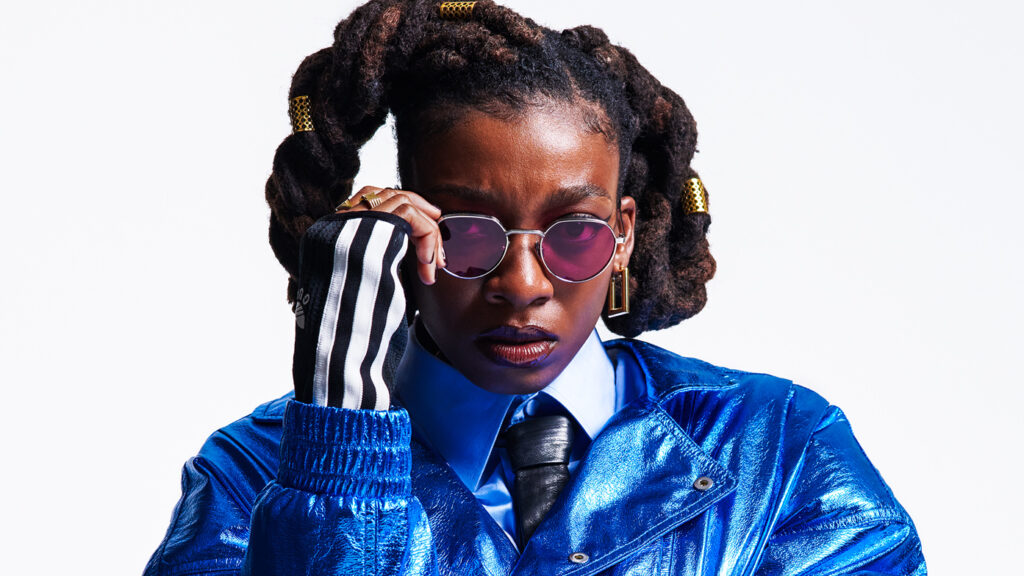
It seems there’s been a miscommunication. Simbiatu Ajikawo and I are not sitting in a booth at one of her favourite restaurants in London, as I’d been told. The 28-year-old actor and rapper, who you may know better as Little Simz, picks up the menu. She squints at it a little. Has she got a regular? “From here?” She looks up to meet my eye, slightly confused. “Err,” and after a long pause: “No, not a regular.” Once we order — fish with a prawn starter, and a passionfruit mocktail for her — I ask if lines were crossed, to place us in this fairly nondescript, “Caribbean-inspired” establishment co-founded by two white men.
Yes, there may have been a mix-up. “It’s a cool spot, though,” she offers, diplomatically. “But favourites? I don’t know,” accompanied by a slight frown. To be clear, Ajikawo’s preferred place to eat is Enish, in Finchley, north London. Their Nigerian fare is, to Ajikawo, “just really authentic; it feels like home, so I like going there.” Now, she smiles. We’re meeting right after the photoshoot, so she sits across from me in full, stunning makeup and a relaxed fleece zipped right up to the neck.
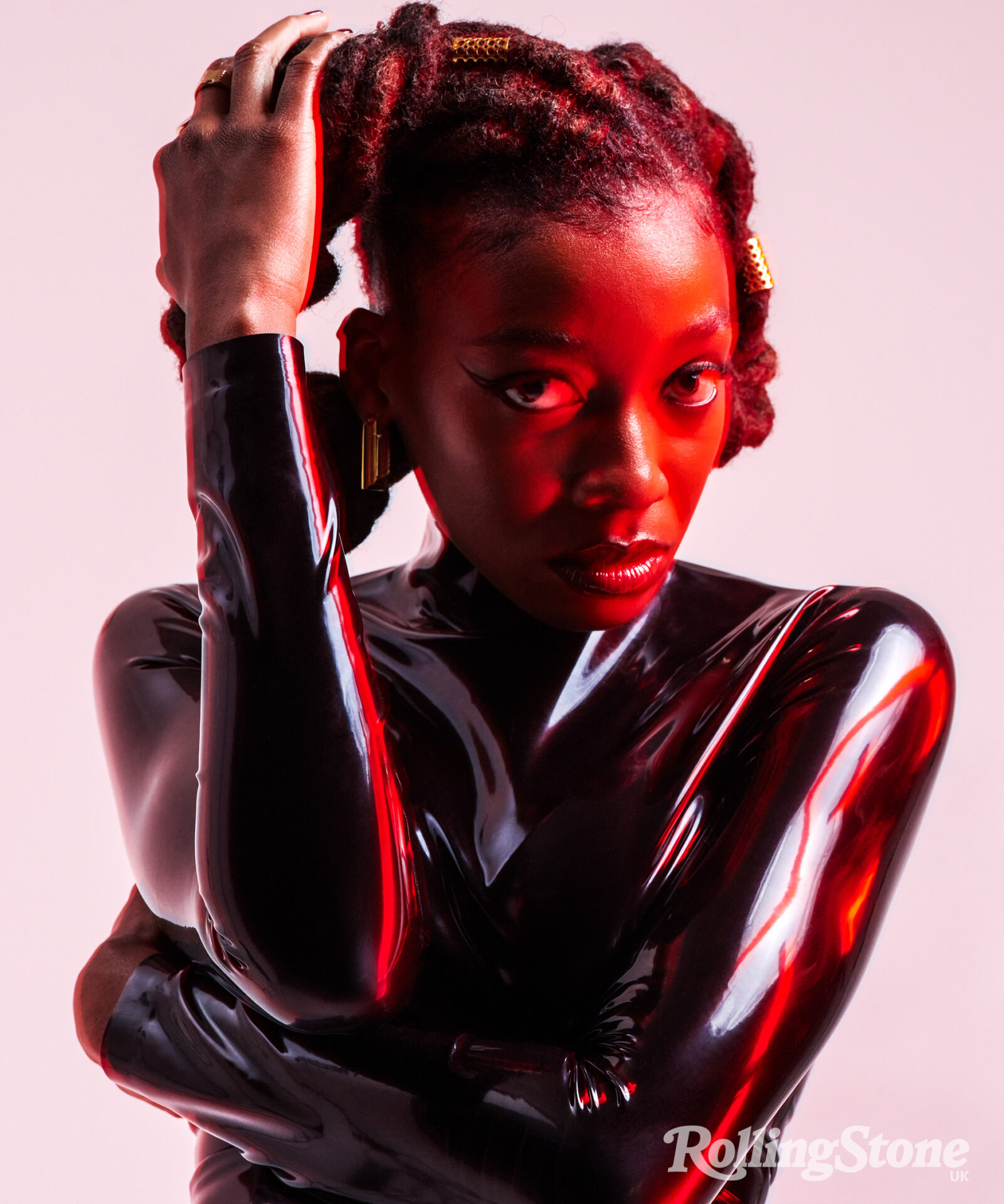
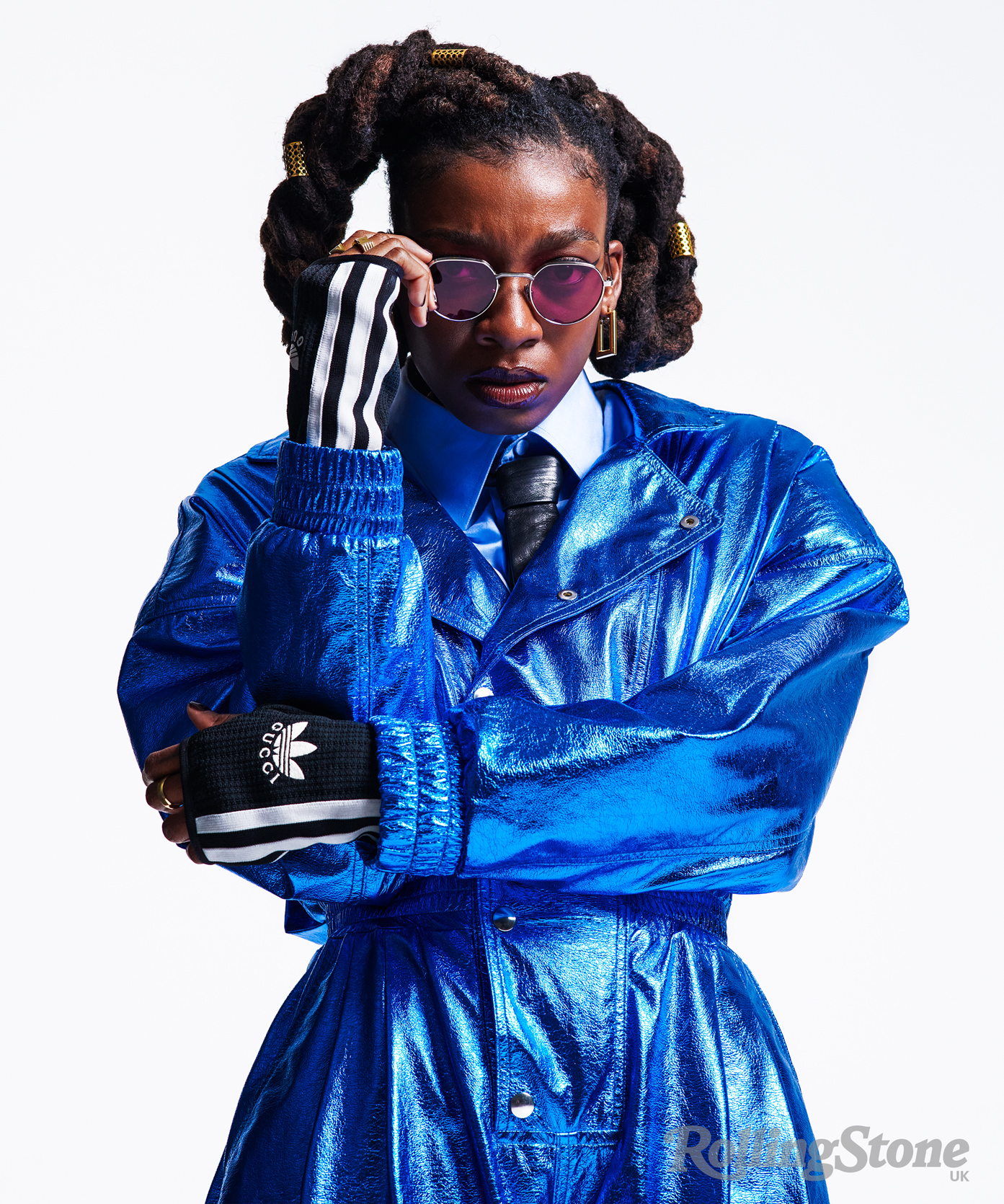
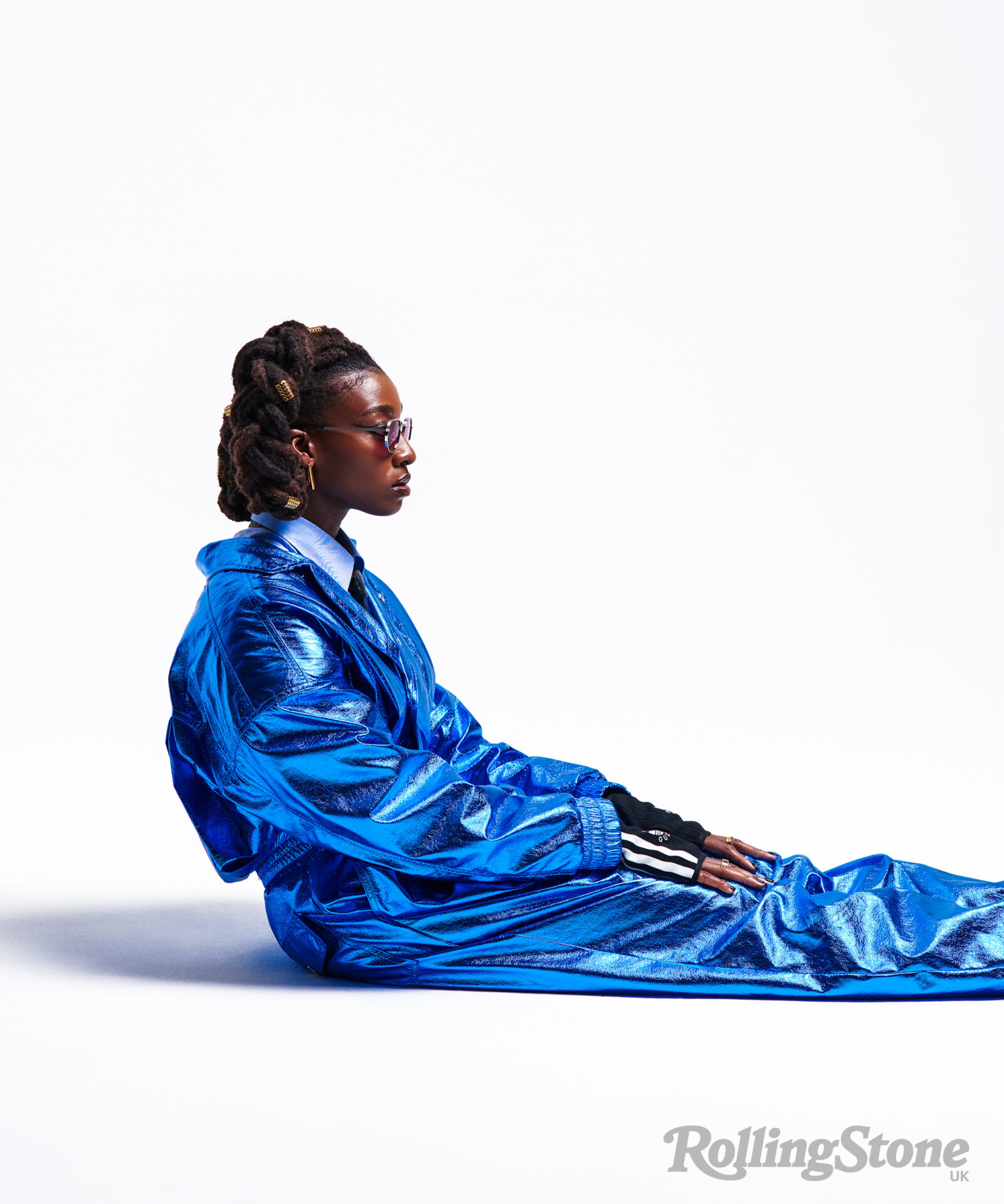
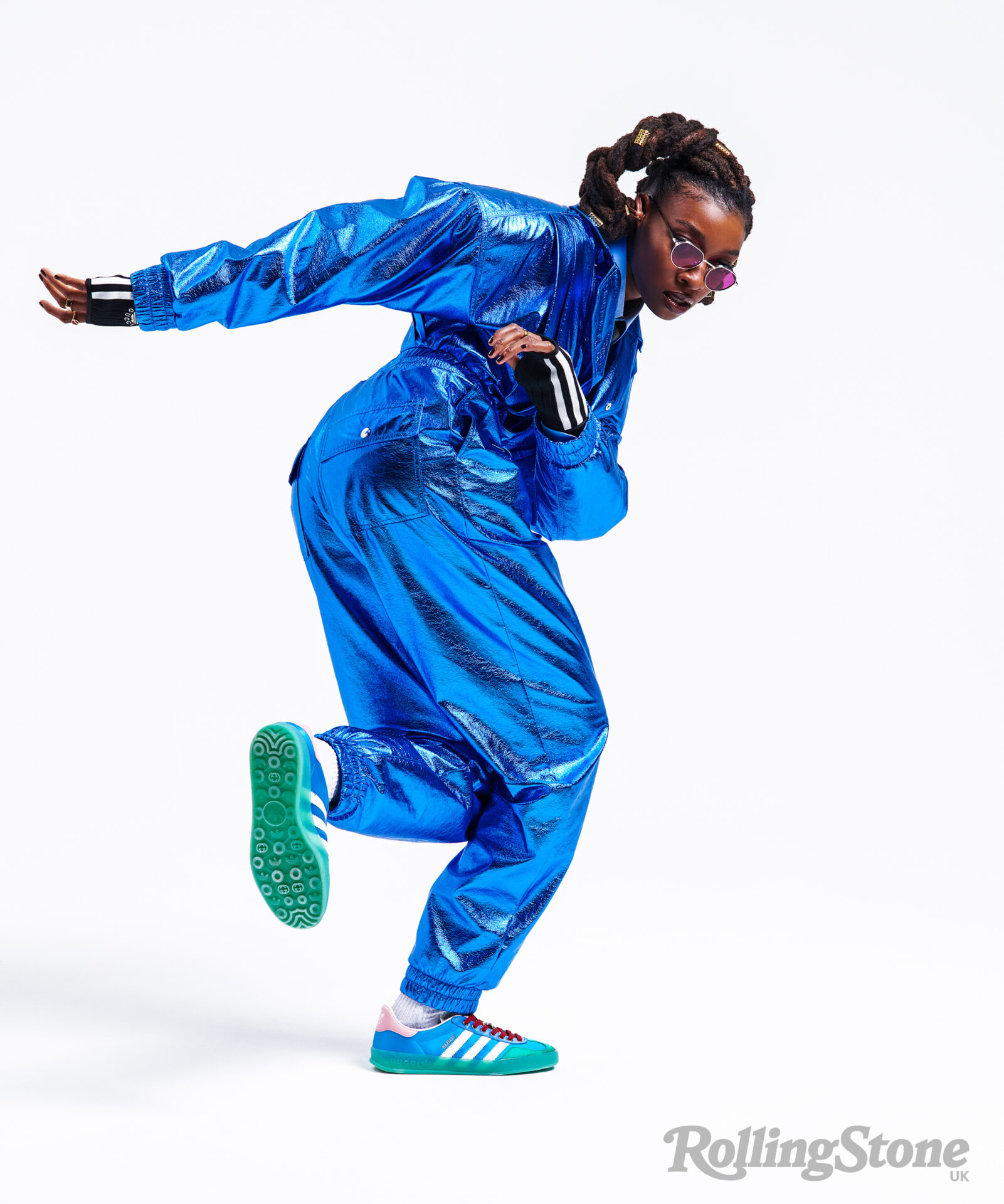
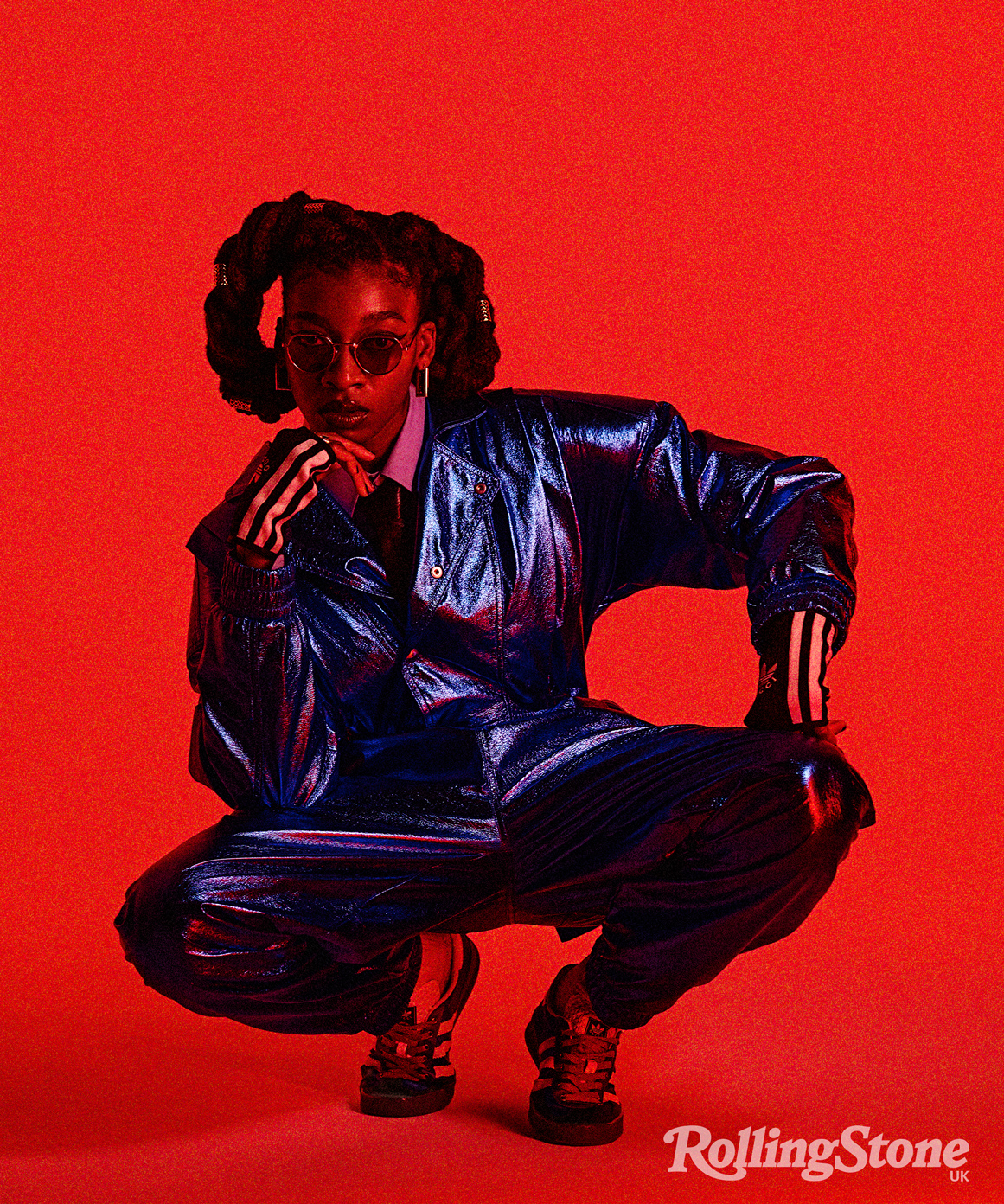
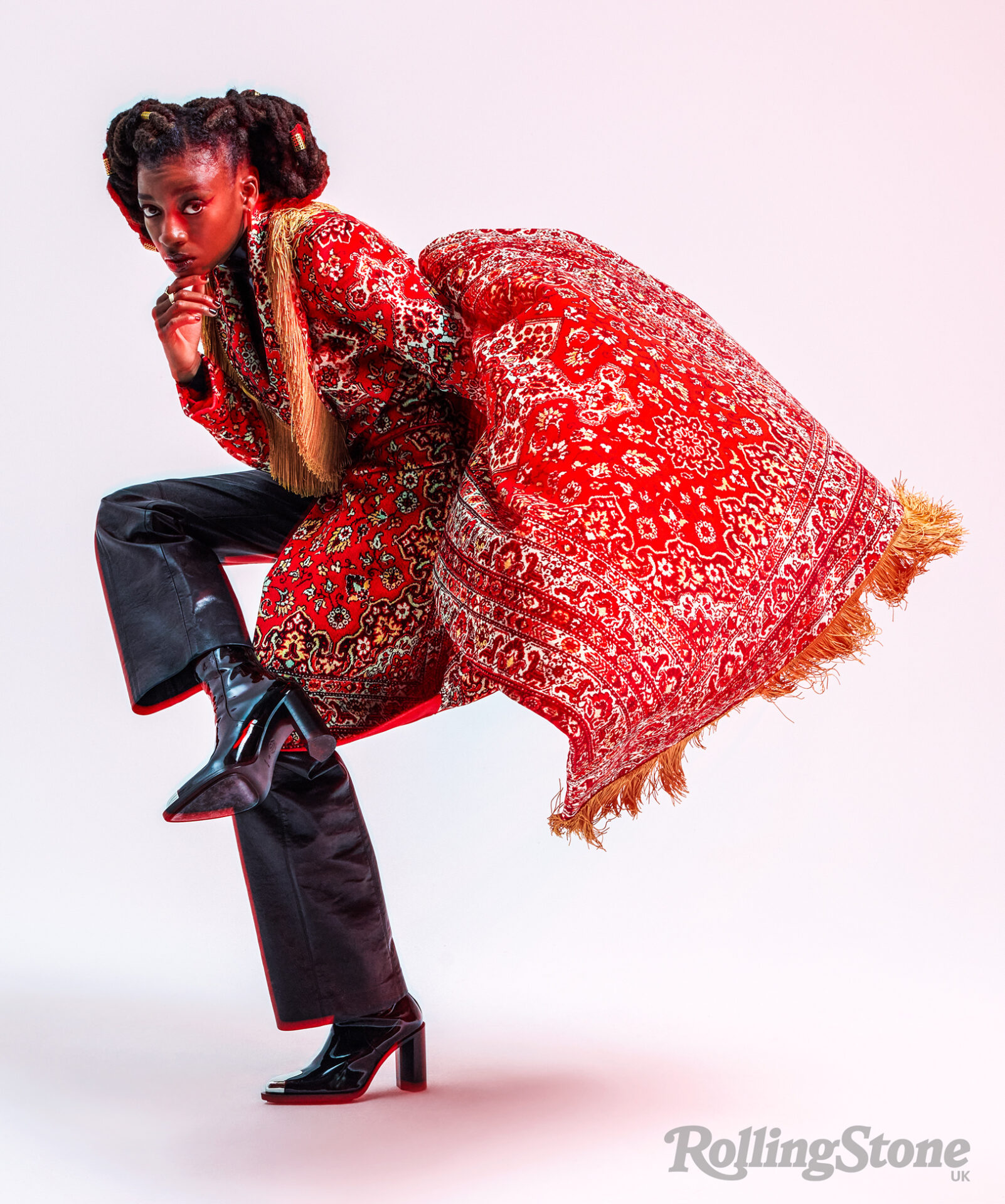
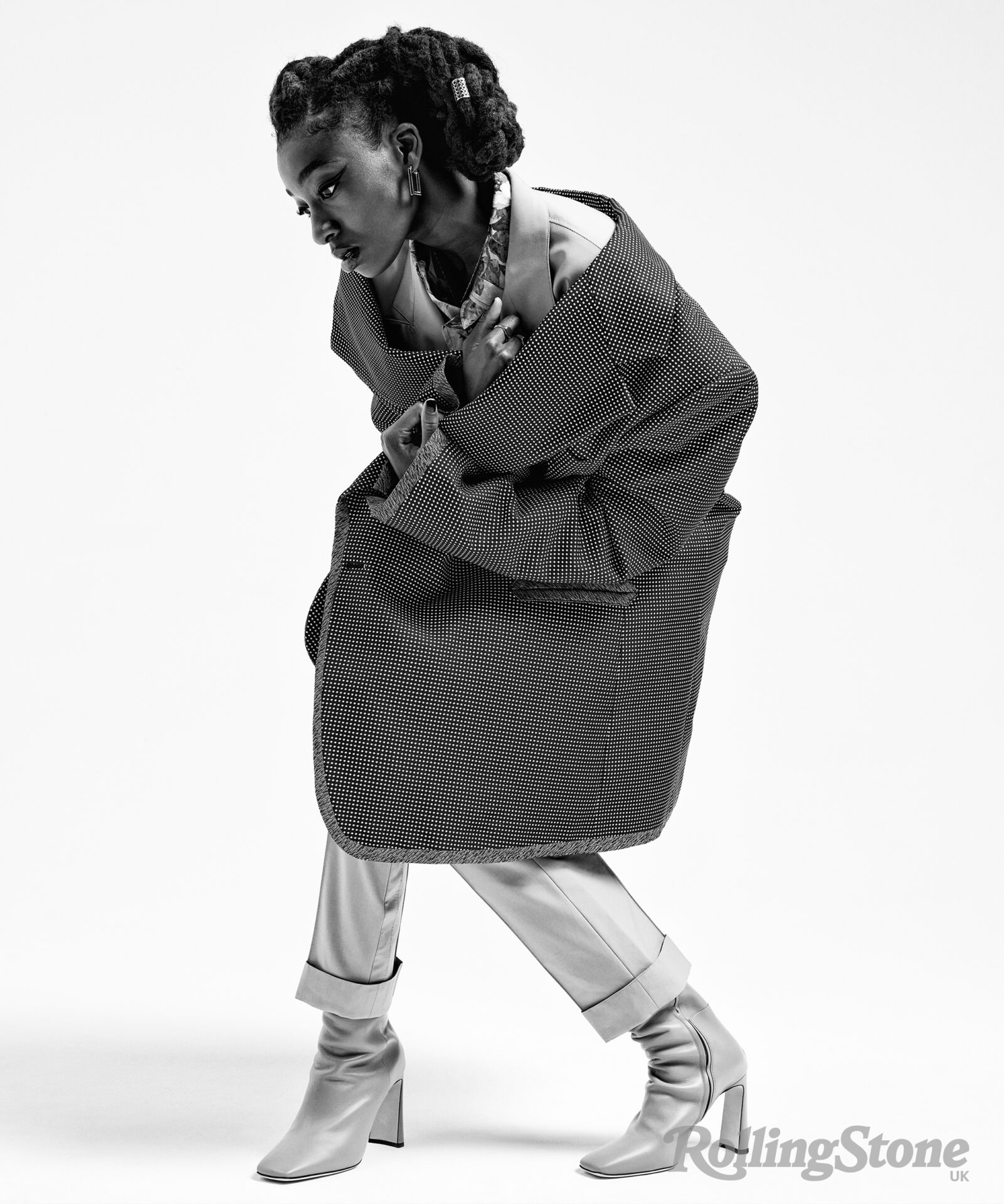
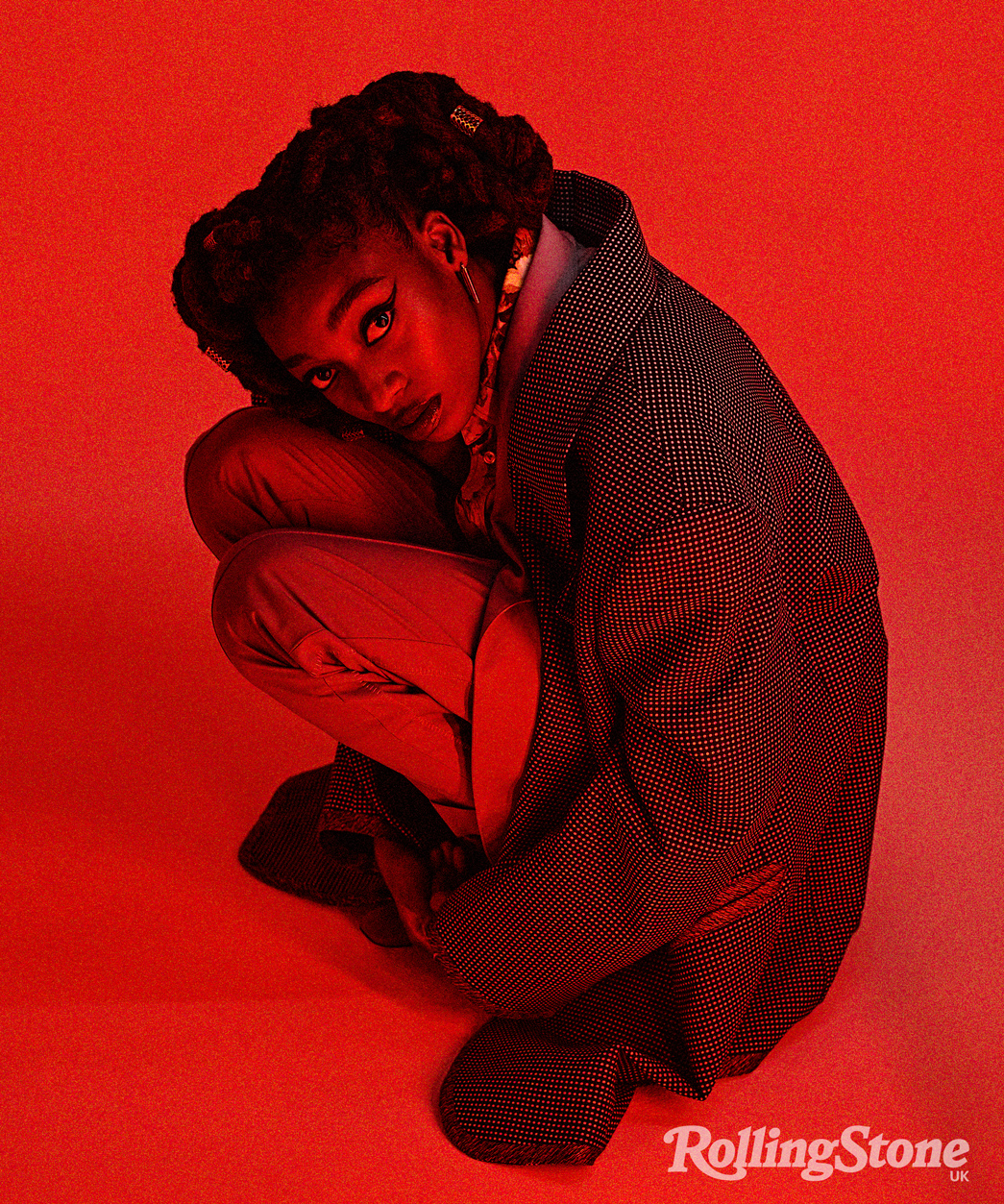
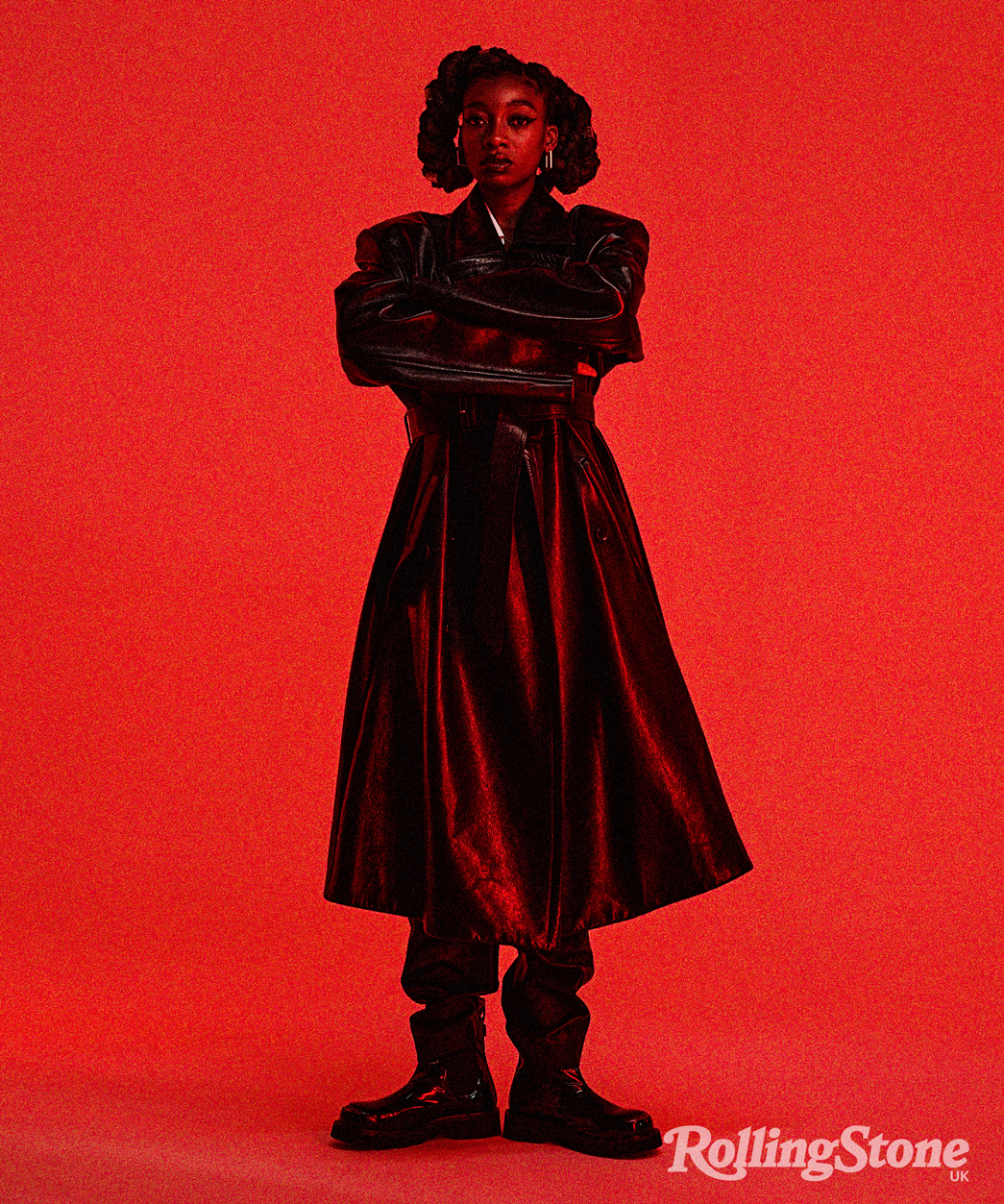
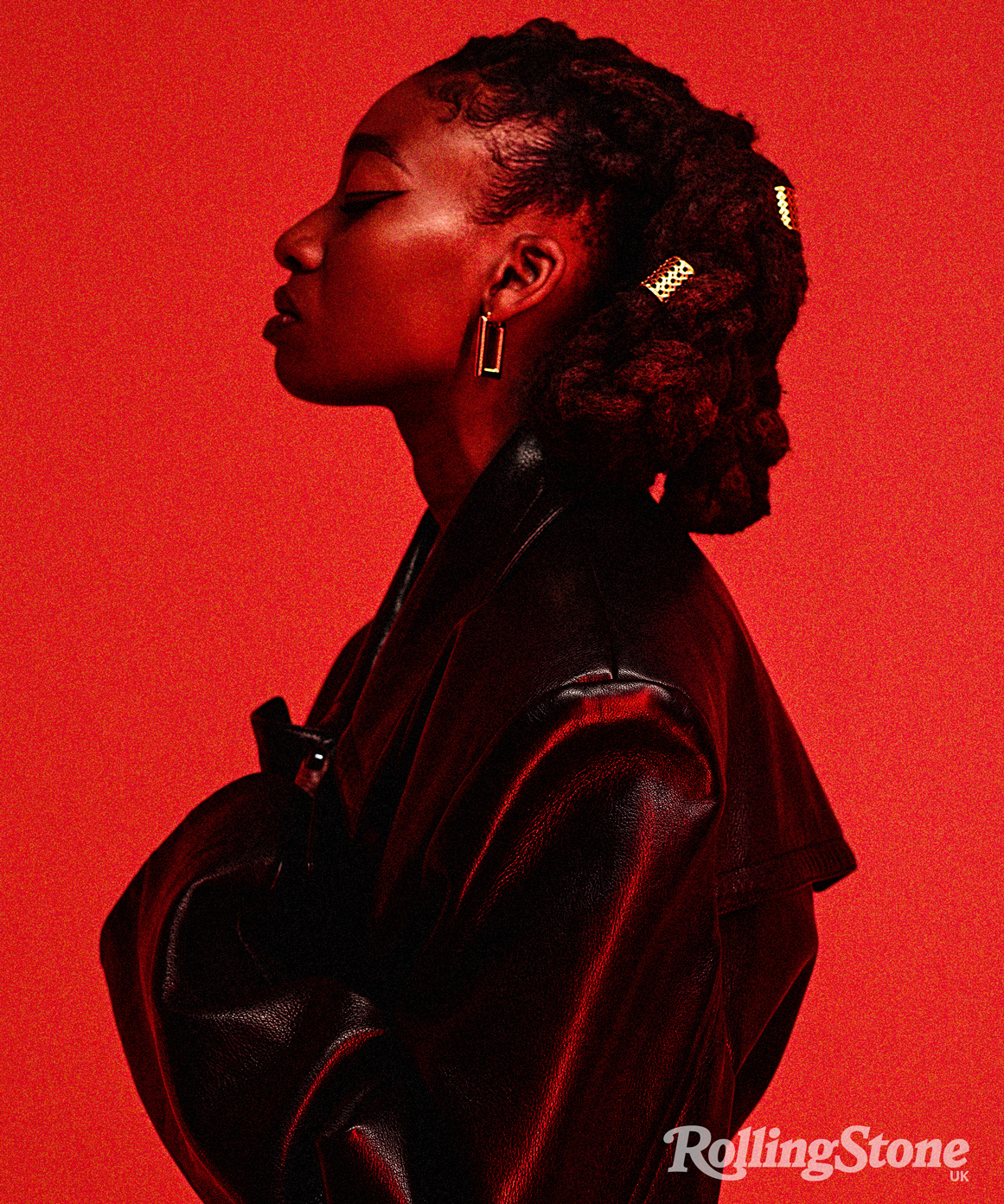
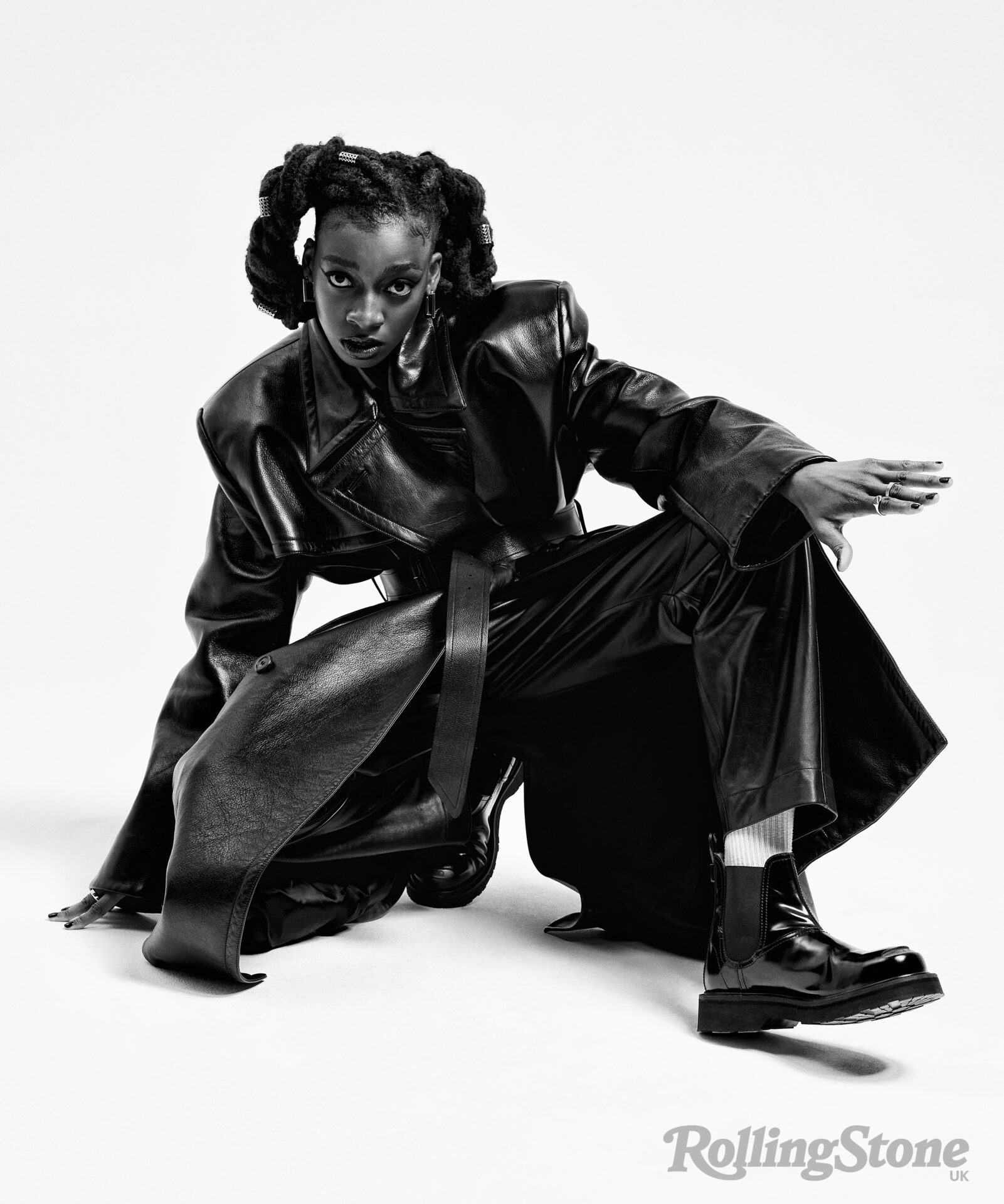
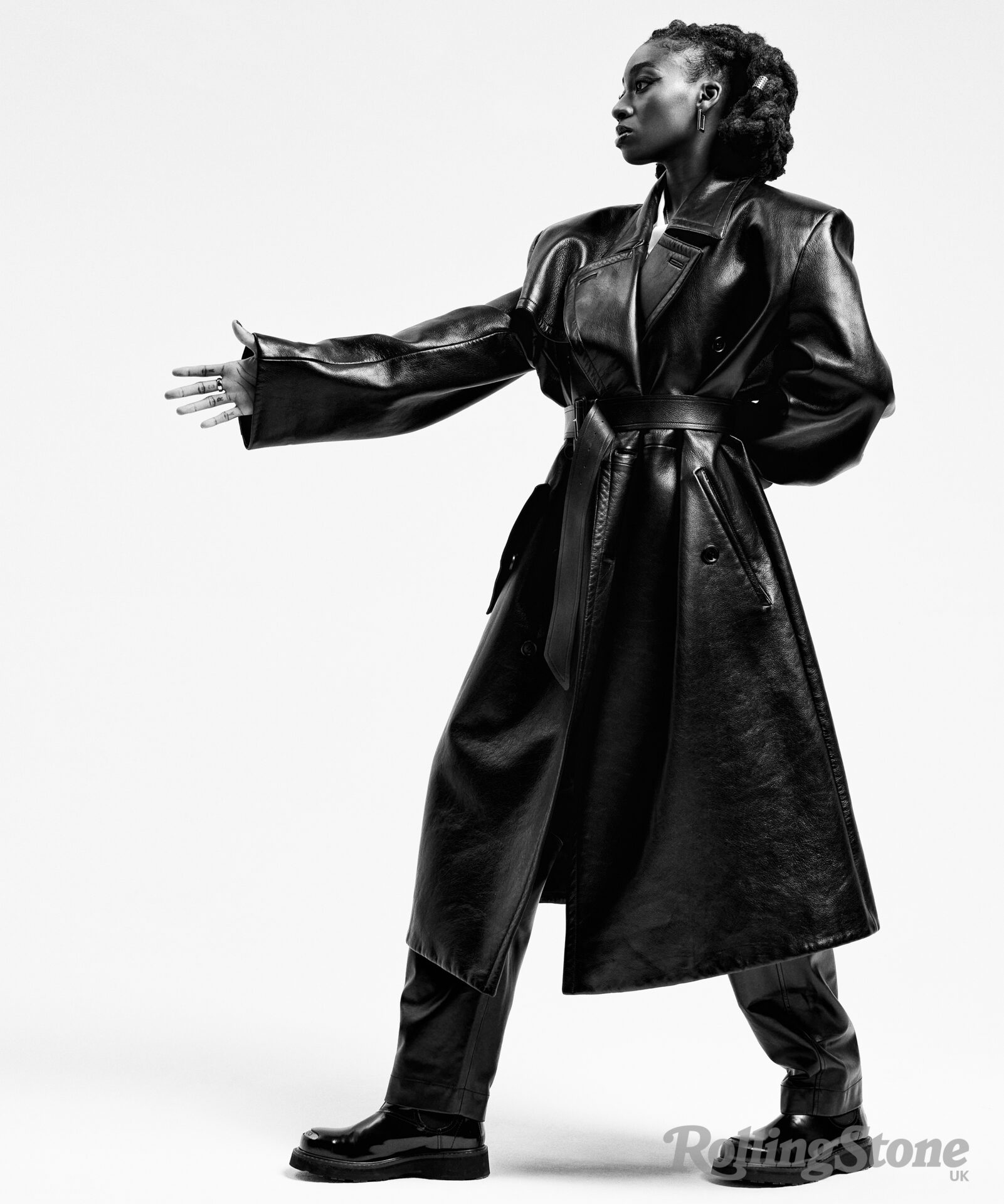
The sound of horns on a chirpy, reggae instrumental blare out from speakers above our heads. Besides her publicist, her security and the staff, we’re the only people in here. It’s late afternoon, in the lull between lunch and dinner services. Before Ajikawo arrived, I’d tried to find us the quietest table, and asked staff to turn the music down. “This is as low as it goes,” a young waiter had said, after double-checking. Fair enough.
But Ajikawo notices it, too. She’s powering down after the intensity of the shoot. And, as will become a theme when thinking about how she behaves professionally, she’s hyper-aware of our surroundings. We’re just about to start talking about the Mercury Prize awards that nearly didn’t happen.
They were first scheduled for 8 September, one of those autumn days in London where the sky hangs low before darkening into a sudden downpour. She was nominated for 2021’s Sometimes I Might Be Introvert, feeling “really excited for the day, in the way that award show days go, you know? You do your dress rehearsal, you go to the hotel, you get ready; you take your time. You put your songs on, and you gear up for it”— but then she interrupts herself. “Should we ask them to turn this down?” Soon, she has her security guy on it: “Let’s get them to try and turn it down, the music,” she shouts over to him. “There’s no one in here!” Ajikawo giggles. She’s right. And he does a much better job than I did — we soon get silence. Right, where were we? “I was getting ready, I had my outfit on.”
“I just felt like, ‘Yeah, I can embody different people. I can use my body in different ways, and step outside of both myself and my comfort zone’”
— Little Simz
A couple of hours earlier, news had broken that Queen Elizabeth II was under medical supervision at Balmoral, with members of the family on their way to see her. Ajikawo was in the middle of her usual pre-event ritual. She always cleans her teeth before heading out. Mid-brush, her manager Tilla Acré called, “saying: ‘It’s locked. Everything’s off, everything’s cancelled.’” The Queen had died. No Mercurys. Instead, the start of a period of national mourning.
In the end, Ajikawo spent the bizarre evening with family at her hotel. They detoured on their way to the venue, “and we ordered food and kicked it” in her room instead. It was like a sudden plummet from adrenaline to shock. “Yeah, it’s like you build yourself up and then…” She raises her arms up, before dropping them. “But it is what it is, you know? I guess that’s life, innit? It happened to fall on that day, but it’s all good. Everything for a reason; it just wasn’t meant to be that day.” Her whole attitude is extremely zen when things don’t go her way, and zen when they do — she went on to win the 2022 Mercury Prize when the awards were finally staged in October.
There’s a calm to Ajikawo, noted often in press promoting her last album (and by me, when we first met, in 2019). She sets her mind on something, then moves towards it, without fanfare. You see that in how she gets security to silence this place, in how she asserts herself on the shoot (more on that later). And it’s clear in how she’s stepped into the character of Shelley on Netflix’s Top Boy reboot. She seemed to casually move into acting, having built a career as a rapper for more than a decade. But the real story’s not that simple. As she picks up Rolling Stone UK’s Television Award, is she likely to sit back, satisfied with her accomplishments so far? Not quite.
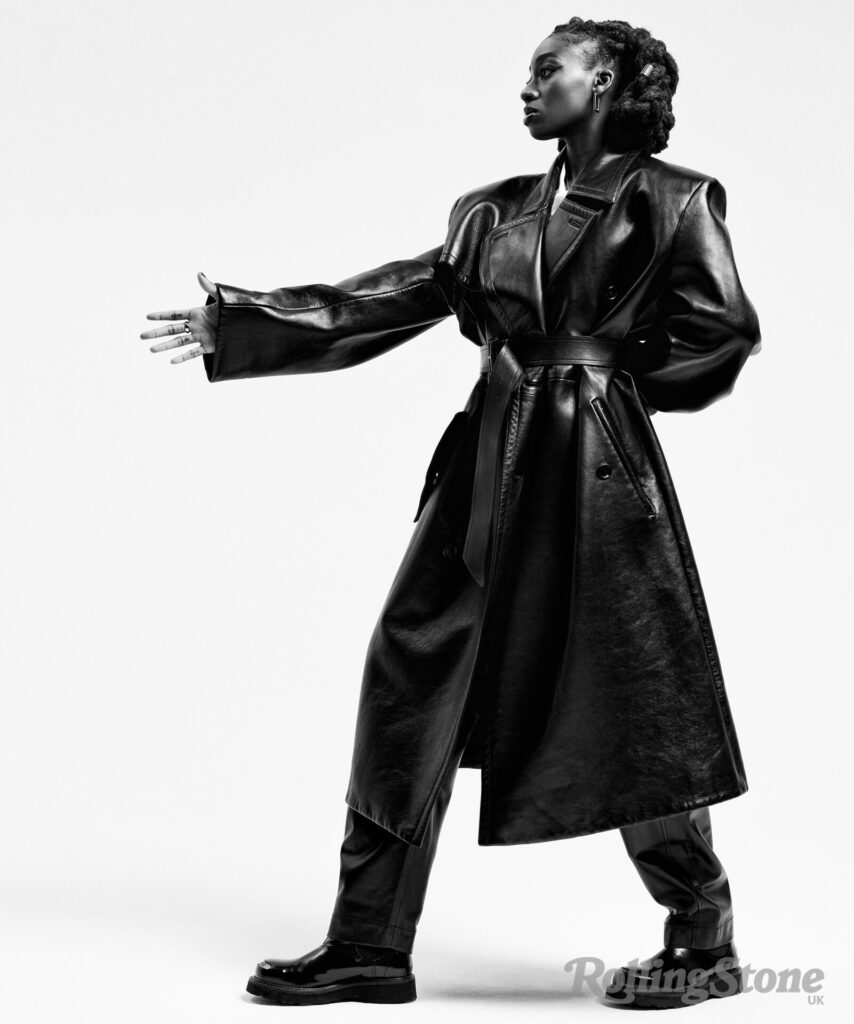
Before you get any ideas, she won’t be drawn on the plot for the next, and final, season of Top Boy. “This season I was definitely stretched,” she begins. She wanted “to make sure I gave Shelley her due diligence and did everything in my power to make sure she goes out the right way. However, that” — then cuts herself off — “you’ll see it anyway.” All she’ll offer now is a smile. Season two saw single mum Shelley grow even closer to titular top boy, Dushane Hill (played by Ashley Walters). The season closed with a major twist. Something to make people gasp. As much as Ajikawo loved seeing fans online react in real time, she scrunches up her face saying one word: spoilers.
“I’ve always thought,” and she kisses her teeth, “‘Just chill.’ I understand the excitement for it, but let people enjoy it at their pace.” She’d tweeted as much, in March, when the season dropped in full (“lol yo chilllll on the spoilers”). “People wait so long for it, that to go, ‘I’m gonna tell you the end plot’ when it’s just dropped, is a bit…” her voice trails off into nothing. But, she sums up, “That’s the internet.” It’s one of the few times talking about Top Boy when she looks irritated. Back to her zen state, she brushes it off.
Mostly, she enjoys being able to discuss her acting rather than only her music. When I ask how she knew she could act as a child, she stops. “No one’s ever asked me that before. I don’t know!” I prod, offering up stories of my failed attempts to break into acting at a similar age. “I just felt like, ‘Yeah, I can embody different people. I can use my body in different ways, and step outside of both myself and my comfort zone.’ And I actually enjoy it.”
“I’ve become very protective of myself. I’m big on boundaries right now”
— Little Simz
It’s like flexing a different muscle. As Little Simz, she’s in charge. It’s her vision, accelerated by her ideas. She is, after all, a solo artist. She built a career from freestyling as a teen and self-releasing mixtapes to winning awards — she also won a Brit in February — with that singular drive. Being part of a franchise took some getting used to. “It’s like a football team: everyone’s coming together to make this thing work. You’ve got to have trust in your teammates,” she says. Sometimes, when they’re doing press as a cast and she can’t quite come up with the right line, she’ll turn to Walters or Jasmine Jobson (Jaq), as if to say: “Help me out.” She and Walters have clicked since her audition. The prompt? For him to make her laugh. “And he did — that was it. It was super quick and simple,” she says. She remembers them laughing, shooting and re-shooting a sad scene from season two with Marsha Millar (who plays Pat, Dushane’s mum). When she describes the story, it’s so clearly loaded with in-jokes that I barely understand why it was hilarious. But she’s beaming. You had to be there.
Shooting season three has been bittersweet, she says. Ajikawo wrapped her scenes a couple of weeks ago: “There’s an element of letting go of that part of you.” But it’s also taught her about her limits, and about what feels good on set. “We worked with two incredible actor-directors this time around as well” — she won’t share their names because she’s “not sure” she’s allowed to yet. “And they really cared about performance as opposed to… aesthetic, and how it looks.”
She chooses these words carefully, slowly. Rather, this duo understood how to concentrate on how a scene felt. They knew how to see things from both sides of the lens. “Sometimes, if I’m doing a scene that requires me to go somewhere emotional, I ain’t got 30 takes in me to do that. Working with people who understand your capacity and what you can handle on any given day, is a blessing, for sure,” she explains.
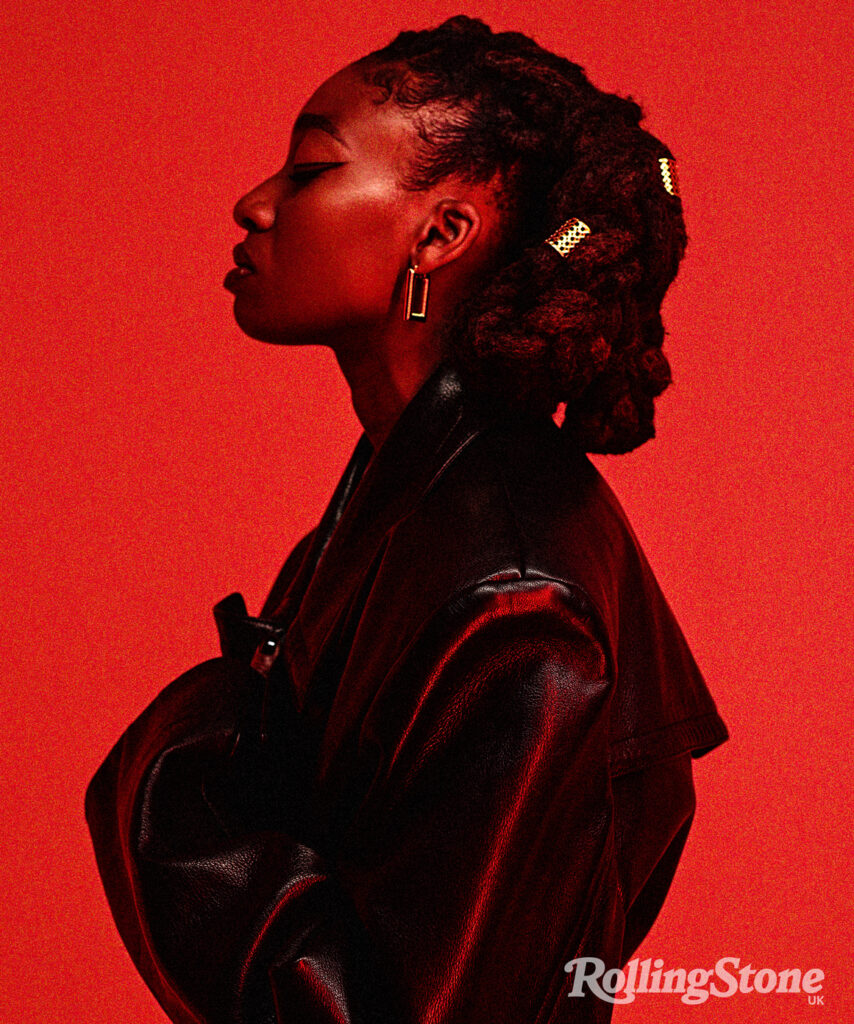
Earlier in the day, I watch her navigate the photographer’s vision in a similar way. She’s wearing an electric-blue Gucci boilersuit and Adidas accessories. Quiet, determined, focused on every shot. The photographer yells encouragement at her, as she contorts her body: crouching, kneeling, then standing. At one point she roars, staring down the lens. Later, we’ll joke that Tyra Banks was right on America’s Next Top Model, about poses feeling weird but translating beautifully on camera. Even so, as the photographer clicks away, a member of Ajikawo’s team passes her message onto her publicist: this will be the last look. The information is relayed to Rolling Stone UK’s fashion director. Ajikawo is firm. Later, she’ll say she’s become “very protective of myself. I’m big on boundaries right now.” Maybe she hadn’t been before.
Does that mean she was pushed too far on other sets? “Not so much with acting,” she begins, but it can be tricky when having her picture taken. “You want me to shoot 20 looks today? I… I can’t,” even though she’d love to in principle. She’s learning to set limits. “When it comes to working with people on set, especially women, I feel like there’s a duty of care,” she says. “Everyone who gets photographed should be asked: ‘What makes you feel comfortable? What makes you feel safe?’ We’re using our bodies; that’s a vulnerable space to be in.”
I can see how Ajikawo has changed over the years. When she was younger, she was quicker to smile to put others at ease in interviews. Then, she had more to prove in a male-dominated industry where her world-building on EPs and mixtapes bucked chart trends. She seems to know herself better now. Her voice is direct, almost biting at times. She knows people on set are “checking for their jobs and whatnot, but I’m also trying to get in the zone. I’d rather not have 10 people look at me while I’m doing it.”
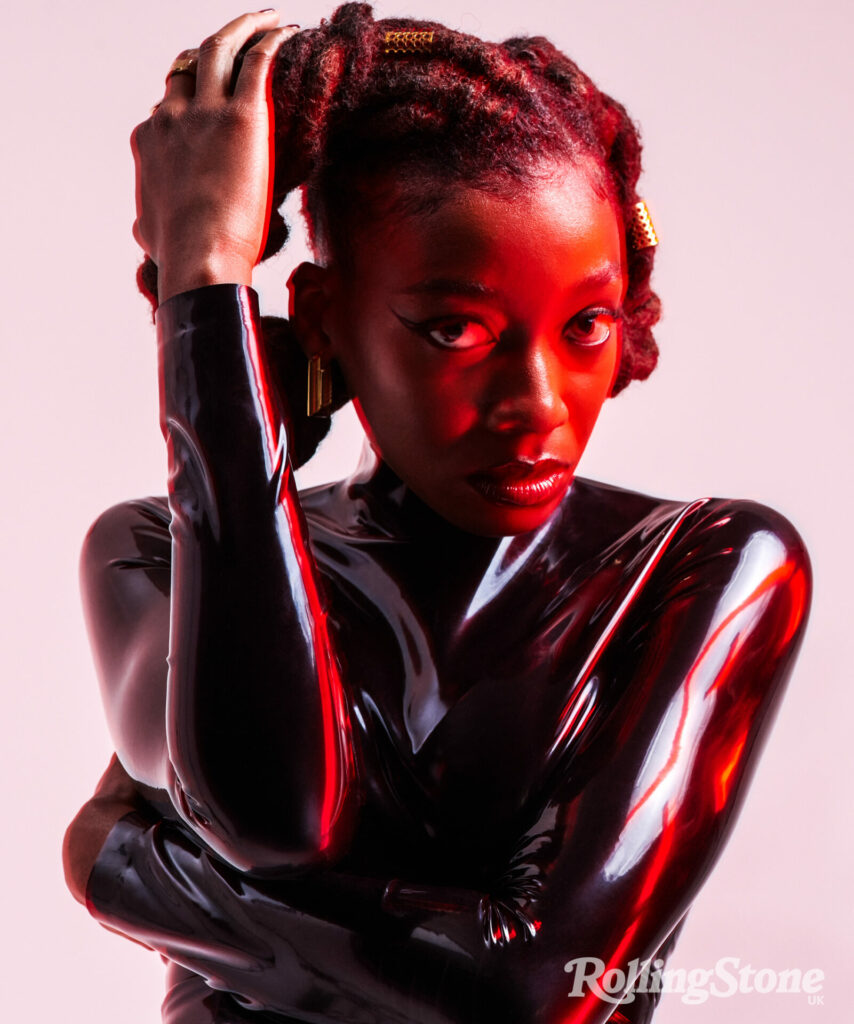
Ajikawo was always quiet. “When I was young, I didn’t really talk much. Like, I wasn’t a mute but I wasn’t outspoken,” she remembers. Even so, as many already know, she went to the Anna Scher Theatre school in north London, and Mary’s Youth Club in Islington. As a teen, she starred in CBBC’s Spirit Warriors and E4’s Youngers. Her older sister, who’d also acted, got her both jobs. “She started her own agency and took me under her wing, put me up for stuff, got me auditions” — and protected her baby sister in the process. “When you’re young, you can get fed to the wolves. But my sister’s my sister before anything, you know? So you can’t talk to me any kind of way,” she says. Having that family support, from both her sister and her mother, propelled her forward.
A quiet child, she’s the same now. She chuckles recounting how little she speaks on the Top Boy set. “I don’t know if people think I’m rude or anti-social — I’m just super-quiet. I’m focused, I’m working, I’m doing my thing.” That’s just how she is. Today, she often nods, and lets out a stream of encouraging “yeah, yeahs” while I speak. “I like to listen, and observe, and ask questions. Just take things in. But every time that gets flipped on its head, I’m like, ‘Whoa, whoa, whoa — this is not how it works.’” Interviews can feel odd as a result. She’s happy to chat, polite, but cautious, too. She warms up, though, when talking about how she wants to grow as an actor: “For me, the idea is to be stretched, and not repetitive.” And she hopes to hold the door open for other Black women, too. “I ain’t gotta do every role,” she says, laughing. She’d love to do action, something she’d need to train for, and has a few scripts on her desk at the moment. “What I want is to do projects that I’m moved by, that I’m inspired by; that challenge me,” she says, looking just beyond my eyes. “I just want to do things that I enjoy, man. I think life’s too short.” Viola Davis, Denzel Washington and Cicely Tyson are among some of the names of people she looks up to, when put on the spot.
“I just want to do things that I enjoy, man. I think life’s too short”
— Little Simz
As our time wraps, we rattle through the books and TV we’ve been into lately. Ajikawo reads a lot, pulling out a highlighter to slash across passages she’ll want to signpost to her future self. She’s heavy on reading philosophical self-help at the moment and shouts out M. Scott Peck’s The Road Less Travelled. “It felt like it was written for me.” Her partner had recommended it to her, and she only realised she already owned it (with different cover art) once she’d finished it. “His segment on love, and on what the definition of it means — if there is one…” she trails off again, but it stuck with her. Peck described love as, she says, “the act or will to nurture your growth, or someone else’s”. And that resonated. Now, she’s wading through The Way of Zen by Alan Watts — “very difficult book to read. I have to read it in silence,” she says, smiling.
It’s not all philosophy, though. She watches Curb Your Enthusiasm to unwind, and Love Island when it’s on. I recommend she adds Abbott Elementary to the roster, and she sounds excited to give it a try. Before she goes, she mentions she’s got a coffee table book coming out. One filled with photos, art, scribbles from her journals, and interviews — “it’s not my life story, or an autobiography. That’s not the vibe.” She sounds delighted, recalling an interview she did with Dr Karen Joash, “a Black woman who works in the NHS and private healthcare. It’s cool that I can sit down, having conversations with people like her, and actually learn.”
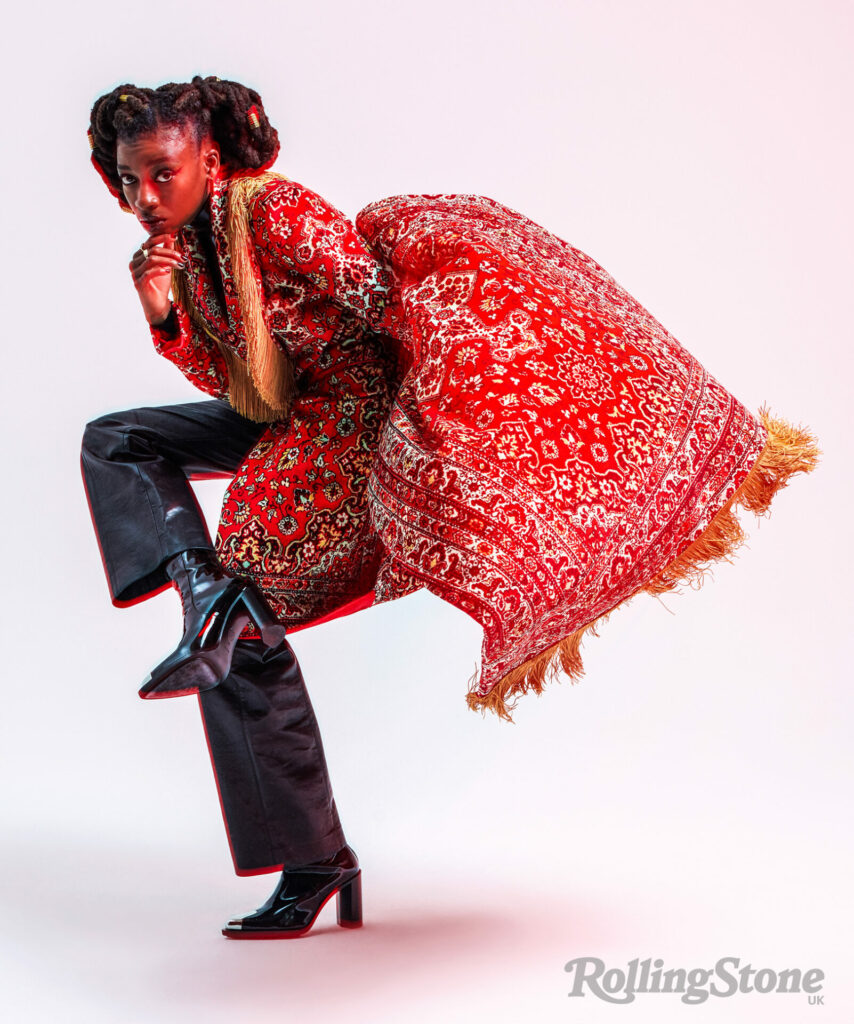
As for the music? Again she won’t be drawn on detail. I ask if she’s writing a new album. “Could be.” A chuckle. “There will be more to come eventually.” But she’s keeping that to herself. “I’m a public figure, in a way, but I’m a private person. I also think people value mystery. You don’t have to share everything, you know? Or you stagger it. I might share stuff that I’m going through now in 20 years,” she says.
Ajikawo refuses to give everything away, to be the type to be very online or a wide-open book. “I give a lot of myself, but I still have some stuff for me. I need to,” she says. That may well be how we ended up in the neutral territory of this restaurant. That’s part of the allure with Little Simz, the artist and actor: unless you’re in her inner circle, you can never really know for sure.
Taken from the December/January 2023 issue of Rolling Stone UK. Buy it online here. On UK newsstands from Thursday 10 November 2022.
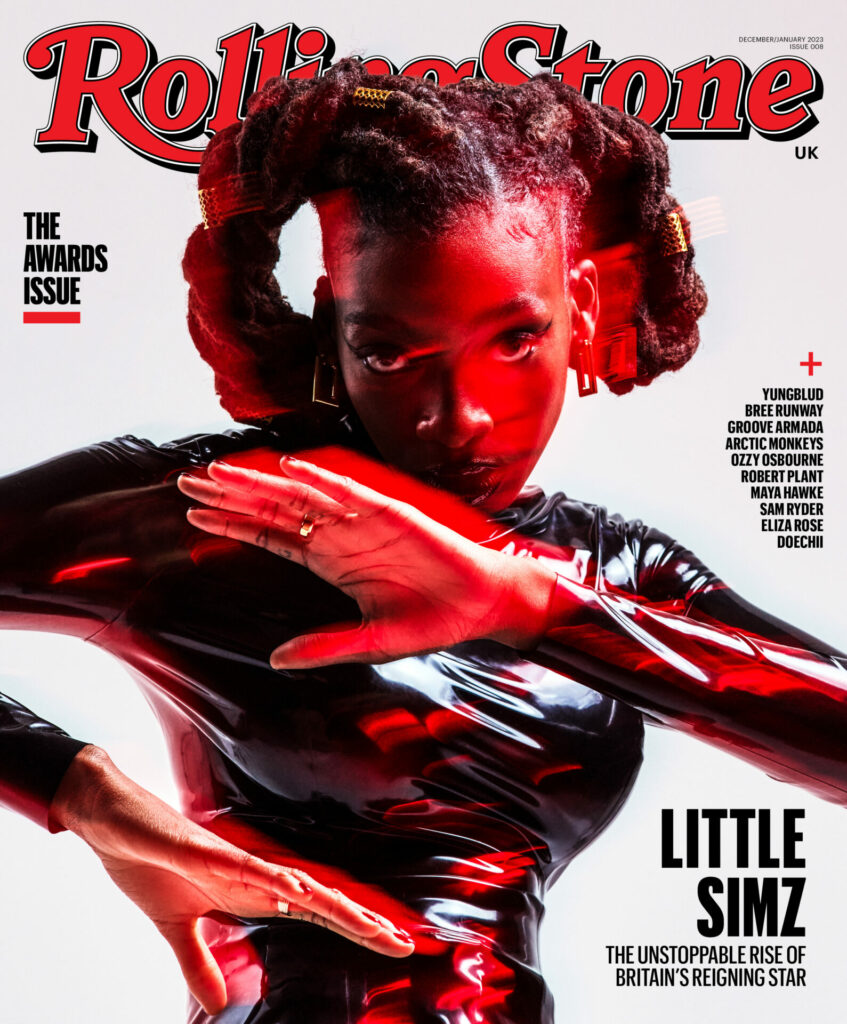
Photography: Kosmas Pavlos
Fashion: Joseph Kocharian
Fashion Assistant: Bethan Dadson
Hair: Chantelle Fuller
Make-up: Nibras using YSL Beauty
Photography Assistant: Luke Johnson
